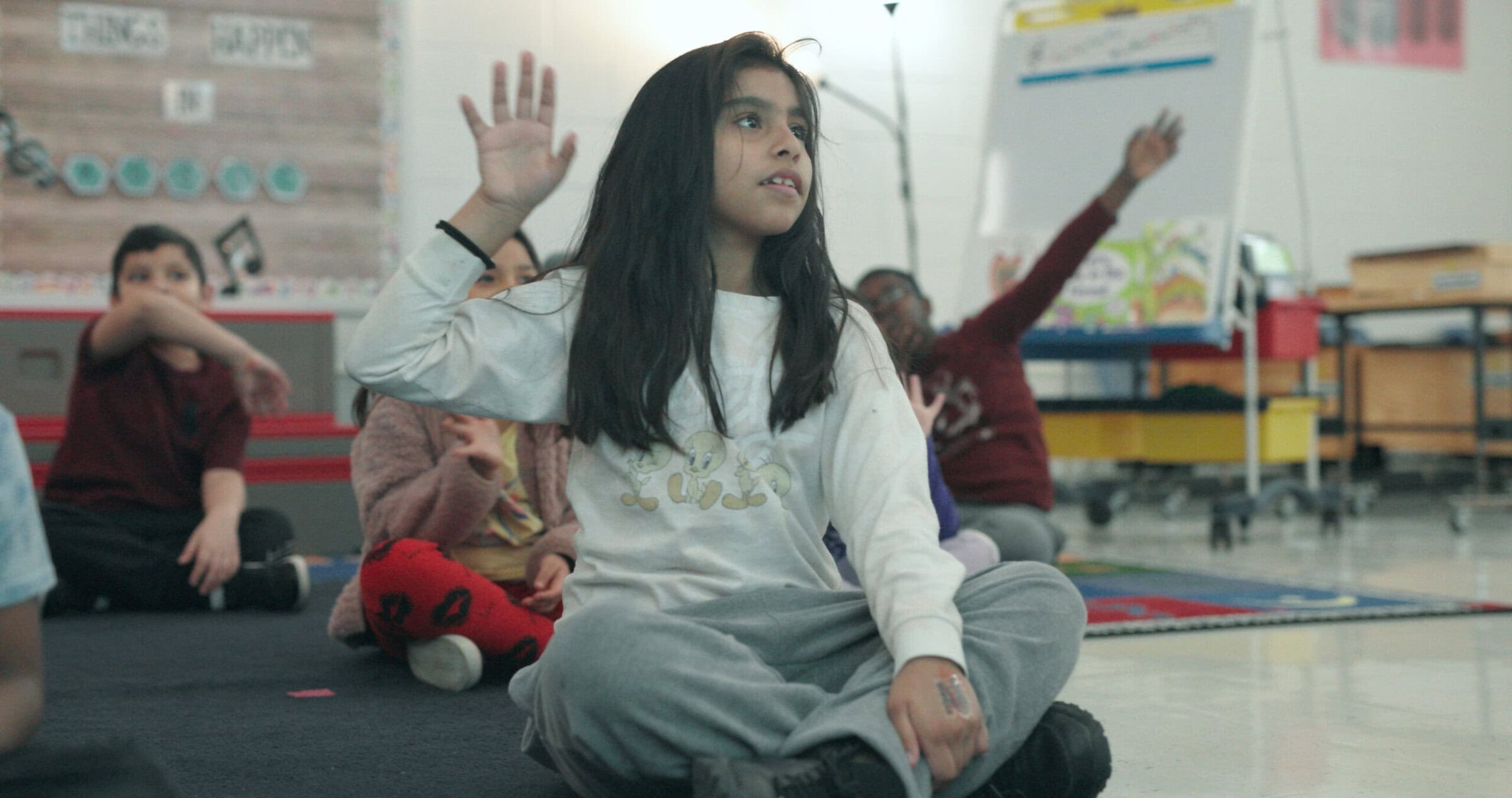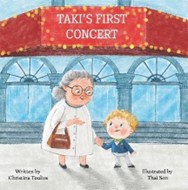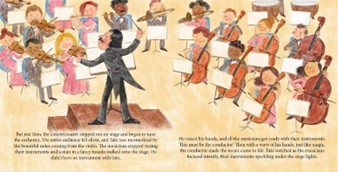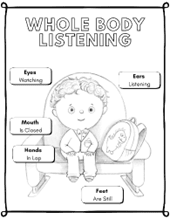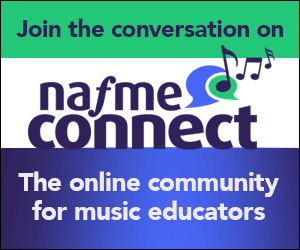/ News Posts / The Importance of Teaching Audience Etiquette
The Importance of Teaching Audience Etiquette
By NAfME Member Christina Toulios
As an elementary music teacher who spends a lot of time preparing students for performances, I’ve come to realize that sometimes we focus more on performance etiquette than on audience etiquette. It wasn’t until last year, when I was preparing my preschool and kindergarten students to attend our High School Wind Ensemble’s performance of The Wild Symphony, that I noticed how few resources exist to teach young learners how to behave as an audience.
I was searching for a book to read to my students to spark a conversation about appropriate audience behavior, but I couldn’t find anything quite right. That’s when I decided to write my own book, hoping it would also be helpful to other educators.
The story follows a boy named Taki, who is attending his first symphony concert with his Yiayia (grandma in Greek). At first, Taki is excited but quickly becomes frustrated by the rules of concert etiquette. However, once the music begins, he discovers the magic of the music and the joy of being a respectful audience member.
The book uses simple, familiar language that mirrors what students hear in their classrooms: eyes watching, ears listening, mouth closed, hands in lap, and quiet feet. It also includes two worksheets to help young learners reinforce these audience behaviors.
Reading this book with my youngest learners helped prepare them to sit quietly in a real auditorium for the first time. Their fantastic behavior reminded me how important it is to have these conversations with students of all ages. I also used the book with my elementary students to get them ready for our in school band, chorus, and orchestra concerts, and it was very well received. Some students even shared their own experiences of encountering disrespectful behavior, like seat-kicking or talking during performances.
Many of my students, and likely yours as well, have diverse needs and may find it difficult to sit still due to sensory, developmental, or physical differences. To set students up for success, I have them engage in movement activities beforehand to help meet their sensory needs. During concerts, I provide fidget tools, flexible seating, offer movement breaks when needed, and arrange seating strategically to reduce the intensity of the music. Visual schedules and cards displaying appropriate behaviors also serve as helpful reminders throughout the concert. These accommodations create a more comfortable and inclusive environment where every child can fully enjoy the experience and participate in respectful audience etiquette.
Teaching concert etiquette is about more than just rules; it’s about fostering respect for the performers and the shared experience of live music. When students understand how their behavior impacts others, they become more engaged, thoughtful audience members who help create a positive atmosphere for everyone to enjoy. Instilling these habits early builds a foundation for lifelong appreciation of the arts and respectful participation in all kinds of events.
Here is a link for Taki’s First Concert and a lesson plan and worksheet packet to go along with the story!
About the author:
 NAfME member Christina Toulios is an enthusiastic educator with a passion for inspiring young minds. With more than 14 years of experience in teaching elementary music, she has dedicated her career to fostering a love for learning in students. Christina believes that education should be engaging and fun, and she enjoys creating innovative resources that encourage creativity and critical thinking. When she isn’t in the classroom, she loves crafting, baking, and traveling, which often influence her teaching style. Christina lives in New Jersey with her husband Jesse and puppy Lincoln and is excited to share her work with educators and students around the world.
NAfME member Christina Toulios is an enthusiastic educator with a passion for inspiring young minds. With more than 14 years of experience in teaching elementary music, she has dedicated her career to fostering a love for learning in students. Christina believes that education should be engaging and fun, and she enjoys creating innovative resources that encourage creativity and critical thinking. When she isn’t in the classroom, she loves crafting, baking, and traveling, which often influence her teaching style. Christina lives in New Jersey with her husband Jesse and puppy Lincoln and is excited to share her work with educators and students around the world.
Did this blog spur new ideas for your music program? Share them on Connect! Interested in reprinting this article? Please review the reprint guidelines.
The National Association for Music Education (NAfME) provides a number of forums for the sharing of information and opinion, including blogs and postings on our website, articles and columns in our magazines and journals, and postings to our Connect member portal. Unless specifically noted, the views expressed in these media do not necessarily represent the policy or views of the Association, its officers, or its employees.
Published Date
November 18, 2025
Category
- Classroom Management
- Lifelong Learning
Copyright
November 18, 2025. © National Association for Music Education (NAfME.org)
